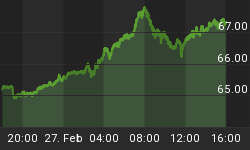If history repeats itself, the newly published “Pandora Papers” will for the most part remain no more than an interesting read for the public and serve as confirmation of their suspicions about various political leaders and tycoons.
The new leak comes five years after the infamous "Panama Papers," which includes similar names on its list of names behind dubious financial dealings the world over.
The Pandora Papers, a cache of some 12 million files, exposes the secret offshore affairs of 35 world leaders, including current and former presidents, prime ministers and heads of state.
It also includes information on the secret finances of more than 300 other public officials, including government ministers, judges and mayors in more than 90 countries.
The files were leaked to the International Consortium of Investigative Journalists (ICIJ) and then shared with major news outlets who spent a year and half analyzing the data and just started publishing it.
The documents and files come from 14 financial services companies in offshore financial centers and tax havens such as the British Virgin Islands, Panama, Belize, Cyprus, Switzerland…
Some of the highlights include:
- Jordan's King Abdullah used offshore accounts to spend more than $100 million on luxury homes in the United Kingdom and the United States.
- Through an offshore investment company, Czech Prime Minister Andrej Babis acquired a $22-million chateau in the south of France.
- Long accused of corruption, Azerbaijani President Ilham Aliyev is said to have transacted about $700 million in UK real estate deals.
- Self-proclaimed corruption fighter, Kenyan President Uhuru Kenyatta, and six members of his family have been linked to 13 offshore companies.
- The leaks also link Russian President Vladimir Putin to secret assets in Monaco, though Putin does not appear in the files by name and only numerous of his close associates.
The Pandora Papers represent the latest in a string of leaks over the past seven years, following the SwissLeaks, the Panama Papers and LuxLeaks.
In 2016, some 11.5 million leaked documents from the Panama-based Mossack Fonseca law firm exposed wealthy people and politicians using offshore tax regimes to their benefit.
There were links to 140 politicians and public officials, to 12 current or former heads of state and government and 60 of their relatives in the leaked documents.
Aside from a few resignations, including the Island’s Prime Minister, there is no evidence that any of them were charged or sanctioned for such.
A data leak from a year before, the Swiss Leaks, revealed documents from private Swiss bank HSBC showing how it used the country's banking secrecy laws to help clients avoid paying tax. The bank helped its clients hide $100 billion in secret bank accounts from tax authorities.
Back in 2014, the ICIJ leaked a total of 548 favorable tax rulings that multinational companies obtained in Luxembourg in the period from 2002 to 2010.
At that time, in the so-called LuxLeaks scandal, the International Consortium of Investigative Journalists (ICIJ) alleged that companies from all over the world "have channeled hundreds of billions of dollars to Luxembourg and saved billions of dollars in taxes”.
Former PricewaterhouseCoopers employees Antoine Deltour and Raphael Halet, the whistleblowers behind the “Luxleaks” scandal, were tried and sentenced for violating Luxembourg’s secrecy laws. Deltour was given a six-month suspended sentence, while Halet was given nine months.
















